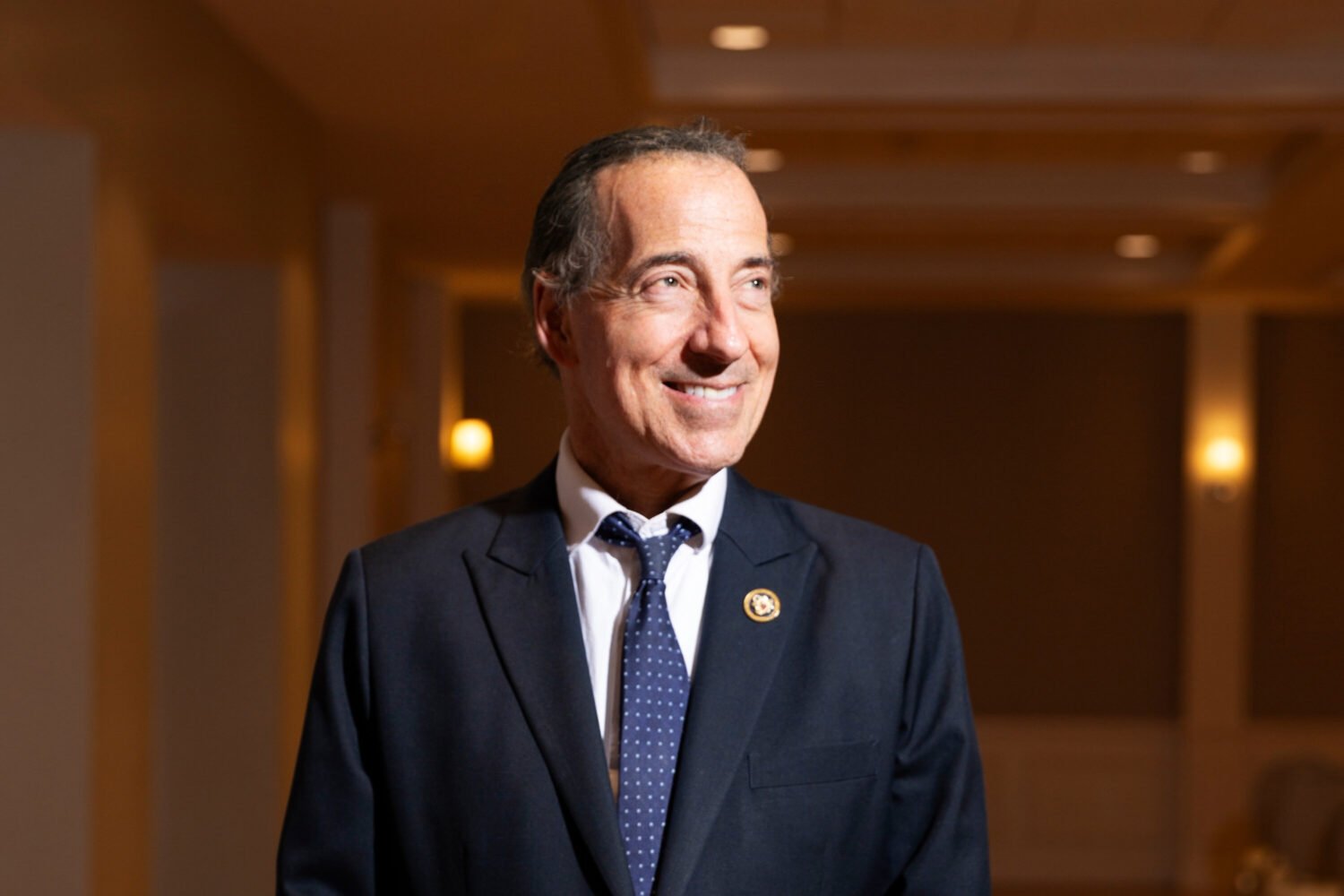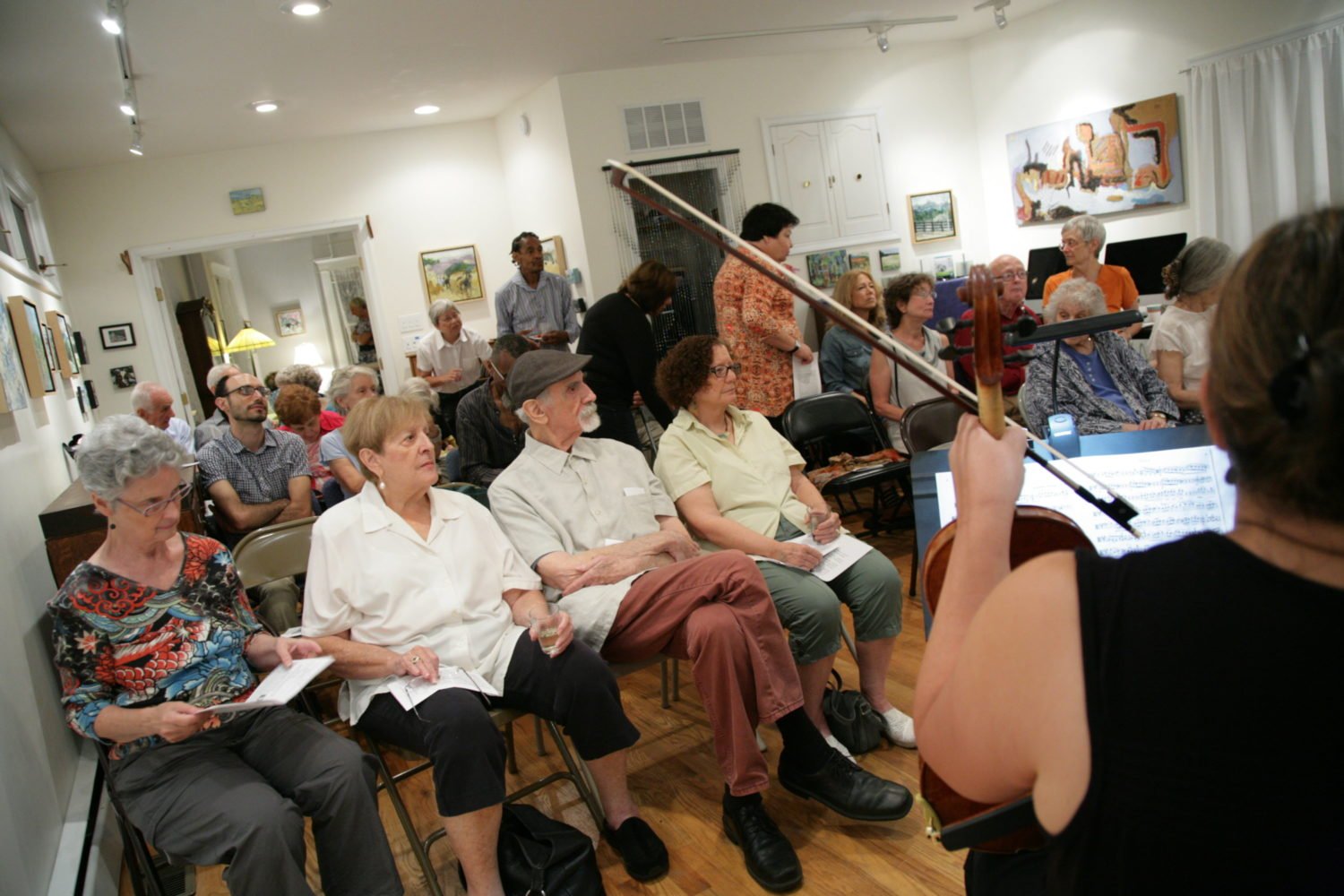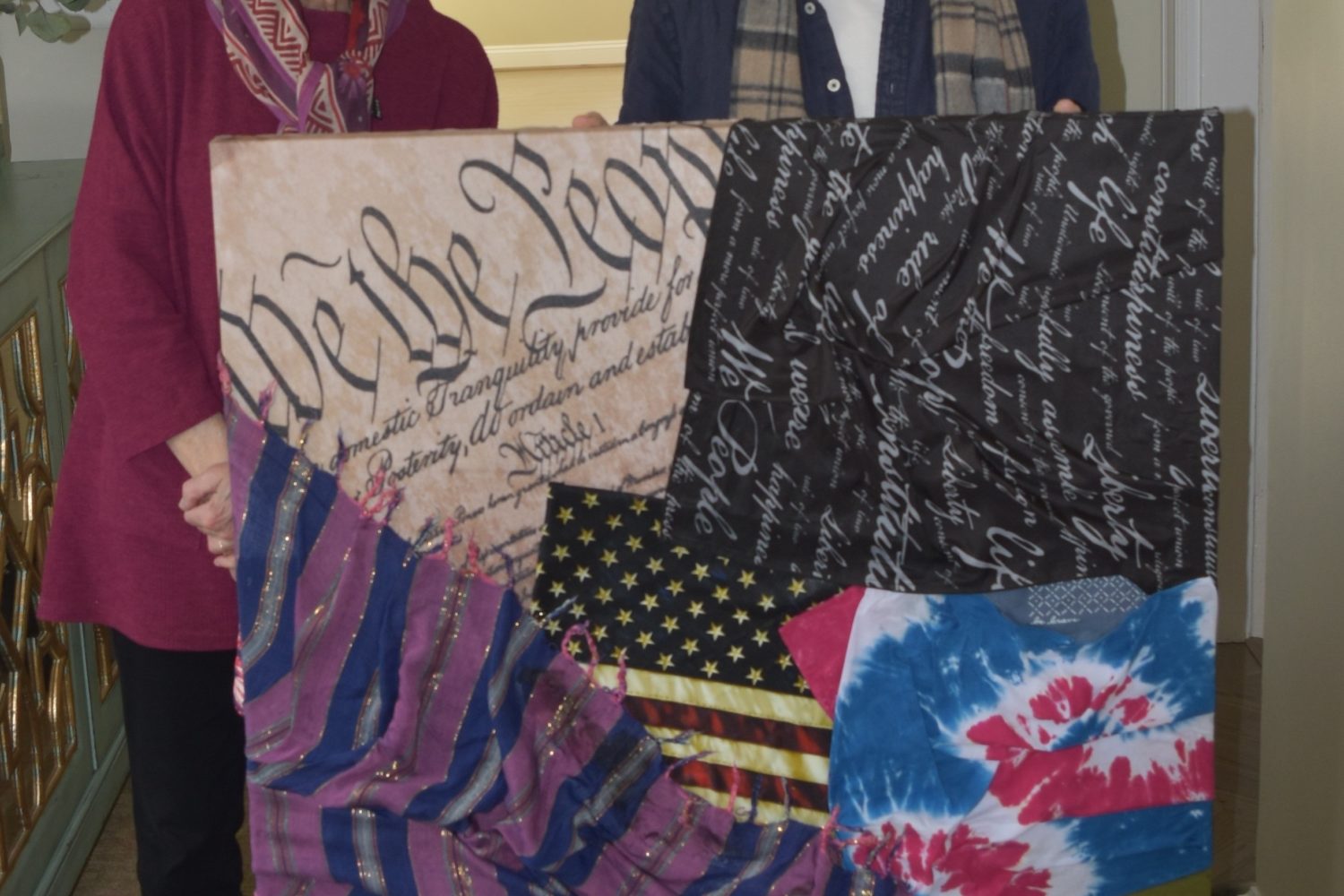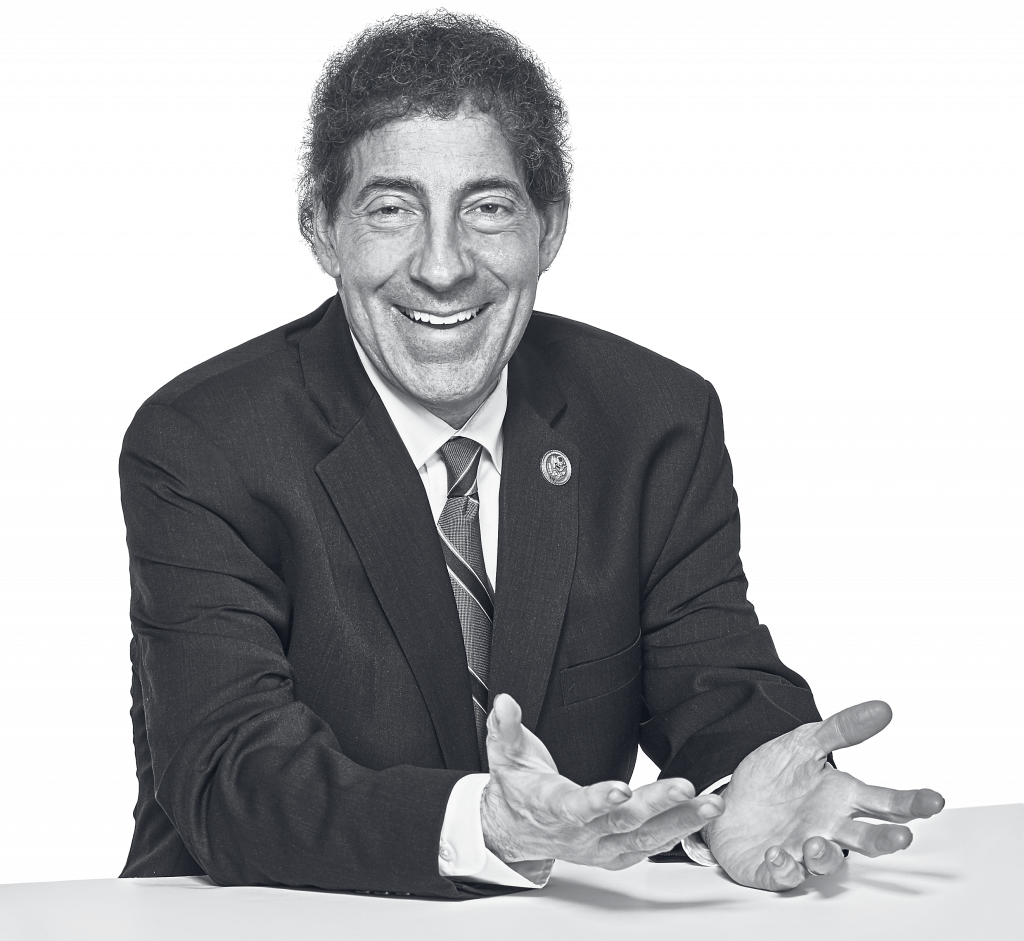
Representative Jamie Raskin speaks in progressive political epigrams. After a decade spent serving the most liberal parts of Montgomery County in the Maryland senate, plus more than 25 years teaching constitutional law at American University, perhaps he can be forgiven for relying on old tropes as he finds new footing since being elected to Congress last fall. In his still sparsely furnished district office in Rockville, he talked about life in the minority caucus, DC statehood, and the hue and cry that followed his remark that President Trump’s business interests might leave him open to impeachment.
Here you are—a progressive congressman in a Republican-controlled government. Wouldn’t you be able to do more back in the Maryland senate?
Look, everything we set out to do in Annapolis we got done. We abolished the death penalty, passed marriage equality, restored voting rights for former felons. We abolished mandatory minimum sentencing in drug cases and reformed civil asset-forfeiture-and-confiscation laws. The big items still on the progressive agenda—paid sick leave, paid family leave, and other economic proposals—are not in my former committee.
Whereas in Congress, in my committees we’re talking about the emoluments clause, equal protection, separation of church and state. I serve on the Committee on Oversight and Government Reform and have 88,000 federal employees as constituents. I need to defend their free-speech rights and their rights to do their work for the right reasons.
So I’m glad to be where I am. I’m not daunted by the Republican margins. I think I have a role to play to defend public things—public schools, public lands, public infrastructure, and the idea of democracy.
There are assaults on the constitution every day. I get to mobilize my constitutional knowledge and expertise and fight back.
Since the election, the energy for the progressive agenda seems to have moved to the street—to marches and protests. How do you enable that from a House seat?
As a member of Congress, part of your job is traditional legislation, but part is organization and agitation. You have to be in the thick of the struggles of the day. There are these fantastic, local community-organizing efforts sprouting everywhere. I’ve addressed these groups in Wheaton, Kensington, Bethesda, Silver Spring, Frederick County, Cabin John whenever I’m asked.
Is that how you operated in Annapolis?
It kind of is. I view politics at its best as education. You educate people about the process and how it works, and you educate people about the issues. I know we wouldn’t have been able to pass marriage equality in Maryland without the grassroots organizing across the state, or abolish the death penalty without all the churches getting involved. Every major advance I participated in in Annapolis was spurred by popular organizing.
Recently, speaking at a health-care rally, you mentioned the possibility that you’d be voting to impeach the President. You got a huge ovation for what seemed like an off-the-cuff remark—
It was an off-the-cuff remark. Actually, I was about to say something positive about the President, and I didn’t want the audience to get the wrong idea. So I said it in passing, but it did create this raucous ovation.
But do you worry that things are overheated? Your district was once represented by a Republican—
My friend Connie Morella—
And of the candidates you faced in the Democratic primary, you were easily the most progressive. Are you concerned by the divisions in your district? How do you balance lower Montgomery County with Frederick and Carroll counties at the northern end, where the concerns are gun rights and development rights?
As a representative who lives in Montgomery County, I have a responsibility to get up to those places. But a lot of the concerns are similar. People are interested in jobs and what we can do to stimulate the economy, in investment, in transportation. Up there, it’s traffic on 270 and 70 and getting back and forth, just as down here people are very concerned about Metro’s safety and reliability.
But transportation has been divisive, too. When Governor Hogan came in, he made a point of funding roads in rural areas, with less enthusiasm for Metro serving the urban blue areas. Will national Republicans bypass Metro?
The wheel’s still in spin on the infrastructure proposal. Every day in the Oversight Committee, I hear representatives justify overruling laws passed in DC based on the theory that it’s “America’s city.” I want to turn that around: “Okay, if it’s America’s city, let’s invest in a Metro system capable of bringing a majority of the federal workforce to work every day but also millions of our constituents to visit our nation’s capital.”
That’s where some Virginia colleagues may be helpful. Barbara Comstock has been vocal about getting money for Metro.
We’re trying to work on a bipartisan basis to make it happen. We’ve just asked the Government Accountability Office to look at the Metro compact. We want to know what’s worked well, what hasn’t, and what structural changes need to be made in the administration of the system.
You’ve also floated an idea for regional cooperation on gerrymandering, in the form of a “Potomac compact” between Virginia and Maryland.
In Virginia, you’ve got a Democratic governor, attorney general, and [US senators]. So it’s a blue state according to popular vote, but the congressional delegation is seven Republicans and four Democrats, after a judicial intervention compelled redrawing one of the districts. In the same way, nationally, the Democrats got 1.4 million more votes for the House in 2012, but the Republicans won 33 more seats. It’s a serious problem.
In Maryland, where the delegation is seven to one in favor of Democrats, Governor Hogan has proposed going to a commission for redistricting, which would be the right idea if we were doing it across the country. But all that would do now is deepen the Republicans’ national stranglehold over the House. If you could bring the two states together in a Potomac compact where we create a commission of experts and citizens—no politicians—it would be fine for the Democrats to give up a seat or two if the Republicans did the same in Virginia.
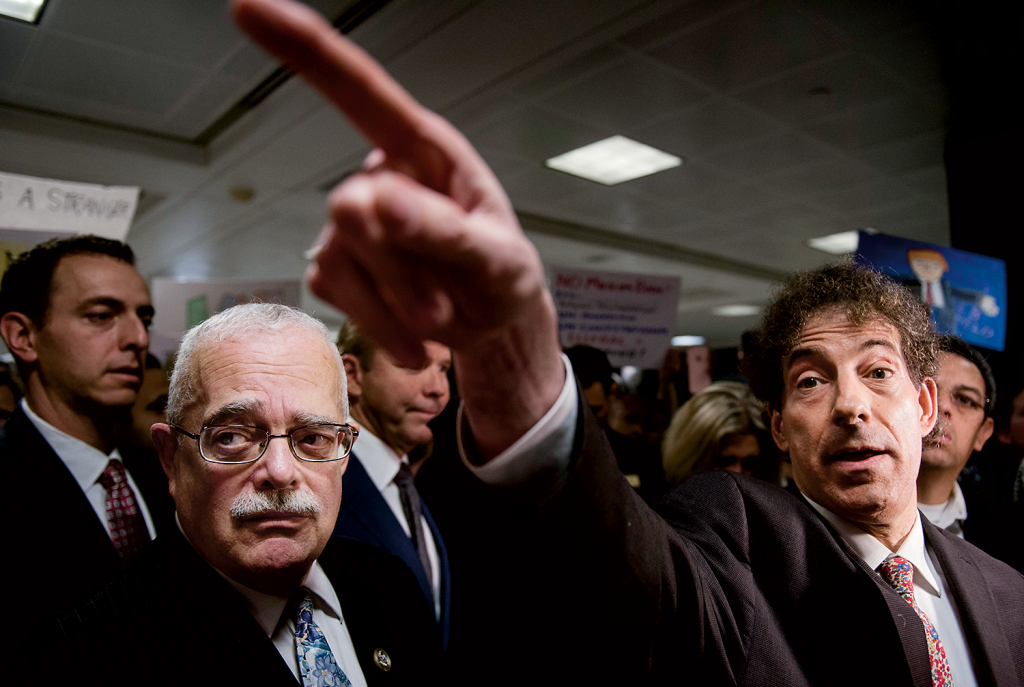
What would Maryland look like if it were districted fairly? Would Baltimore City have its own district and Frederick another?
Maryland is a beautiful but strangely perimetered state because of the Chesapeake Bay. You’re not going to get square districts coming out of Maryland. You can’t do it neatly according to county because some counties, like Howard or Anne Arundel, are too small to warrant their own district and some, like Montgomery, are too big. That’s why I’ve advocated for multi-member districts—we have them in Maryland, with three delegates per district. If we had multi-member congressional districts, with a proportional-representation method of election, we could get Republicans winning in Montgomery County and Democrats winning in Western Maryland.
I want to ask about another stray remark you made. In an Oversight hearing in January, the chair, Jason Chaffetz, suggested that residential areas of DC could be absorbed into Maryland. You didn’t seem to think that was such a crazy idea.
That conversation happened with respect to Congress’s attempt to overturn DC’s death-with-dignity law. What I said was that I’m staunchly opposed—not because I’m necessarily for death with dignity in DC but because I am for life with democracy in DC. You only need to go that far to say leave the people in DC alone. That’s when Chaffetz said if they want self-government, they should go back to Maryland.
These things are too serious to be throwaway lines. The people in DC have put statehood on the table, and I support that, but if they’re tired of meddling by their congressional overlords, they shouldn’t buy the hype that Maryland has somehow considered this and rejected it. There’s no reason DC couldn’t be a city or county in Maryland, with its mayor, council, and school board but also full representation, and not be somebody’s whipping post.
You’re on record as wanting to reform the Electoral College. Are there other changes to voting you’d like to see?
Our constitution still does not have a provision guaranteeing the right to vote. What we have is a series of ragtag antidiscrimination limits—the 15th Amendment says no race discrimination, the 19th says you can’t discriminate against women, the 23rd gives people in DC the right to participate in presidential elections, the 24th says no poll taxes. But nowhere does it say every citizen has the right to vote.
That’s what you see if you open up the new South African constitution, for example. What difference does it make? Well, we still have millions of disenfranchised people in DC and in the territories of Guam and Puerto Rico, where they can’t even vote for President. We’ve got millions of former felons who are disenfranchised in eight or nine states. The right to vote is actually a precarious thing in America. I would love to see a national electoral commission that makes sure we have voter registration that works, that voters aren’t being purged from the rolls, and that the voting systems are accurate and secure. For a long time we took the democratic process for granted, but we can no longer do that.
This article appears in the April 2017 issue of Washingtonian.







